Life
Sign up for our newsletter
We summarize the week's scientific breakthroughs every Thursday.
-
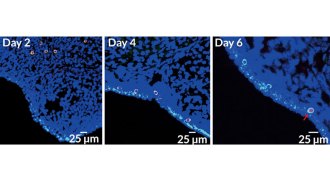 Health & Medicine
Health & MedicineTransplanted stem cells become eggs in sterile mice
Sterile mice that received transplanted egg-making stem cells were able to have healthy babies.
-
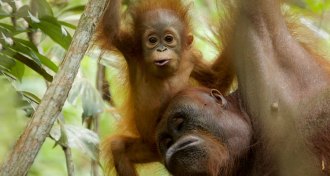 Animals
AnimalsOrangutans take motherhood to extremes, nursing young for more than eight years
Weaning in orangutans has been tricky to see in the wild, so researchers turned to dental tests to reveal long nursing period.
By Susan Milius -
 Life
LifeJumping genes are part of all that makes us human
Ask 10 people what makes humans human and you’ll probably get 10 different answers — and then some.
-
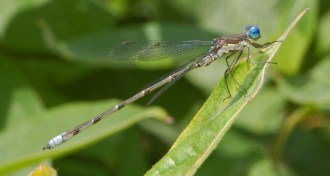 Climate
ClimateHigher temperatures could trigger an uptick in damselfly cannibalism
Experiments in the lab suggest that increases in temperature could indirectly lead to an increase in cannibalistic damselfly nymphs.
-
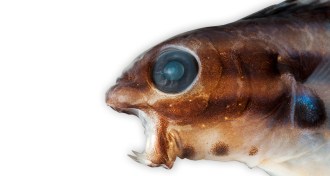 Animals
AnimalsBlennies have a lot of fang for such little fishes
Unlike snakes, blennies evolved fangs before venom, through probably not because of any need to hunt big prey.
By Susan Milius -
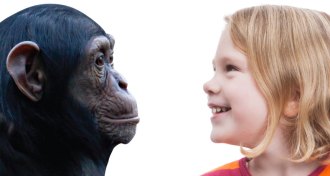 Genetics
GeneticsJumping genes play a big role in what makes us human
Jumping genes have been a powerful force in human evolution.
-
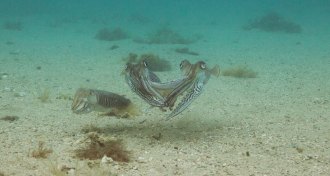 Animals
AnimalsWatch male cuttlefish fight over a female in the wild
For the first time, researchers have observed the competitive mating behaviors of the European cuttlefish in the field.
-
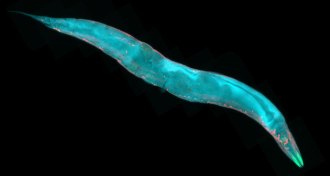 Genetics
GeneticsSelfish genes hide for decades in plain sight of worm geneticists
Crossing wild Hawaiian C. elegans with the familiar lab strain reveals genes that benefit themselves by making mother worms poison offspring who haven’t inherited the right stuff.
By Susan Milius -
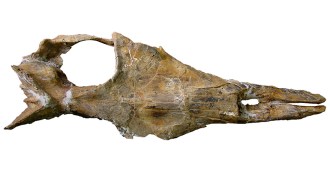 Paleontology
PaleontologyAncient whale tells tale of when baleen whales had teeth
A 36 million-year-old whale fossil bridges the gap between ancient toothy predators and modern filter-feeding baleen whales.
-
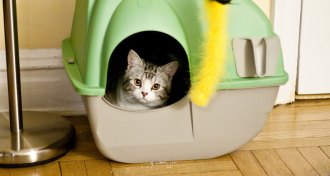 Animals
AnimalsWhy create a model of mammal defecation? Because everyone poops
Mammals that defecate in the same fashion as humans all excrete waste within the same time frame, no matter their size, a new study finds.
-
 Health & Medicine
Health & MedicineBreast cancer cells spread in an already-armed mob
Source tumors may already contain the mutations that drive aggressive cancer spread.
-
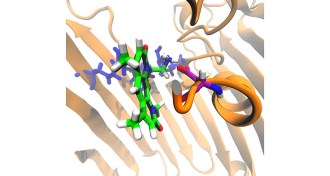 Health & Medicine
Health & MedicineNew rules for cellular entry may aid antibiotic development
A new study lays out several rules to successfully enter gram-negative bacteria, which could lead to the development of sorely needed antibiotics.